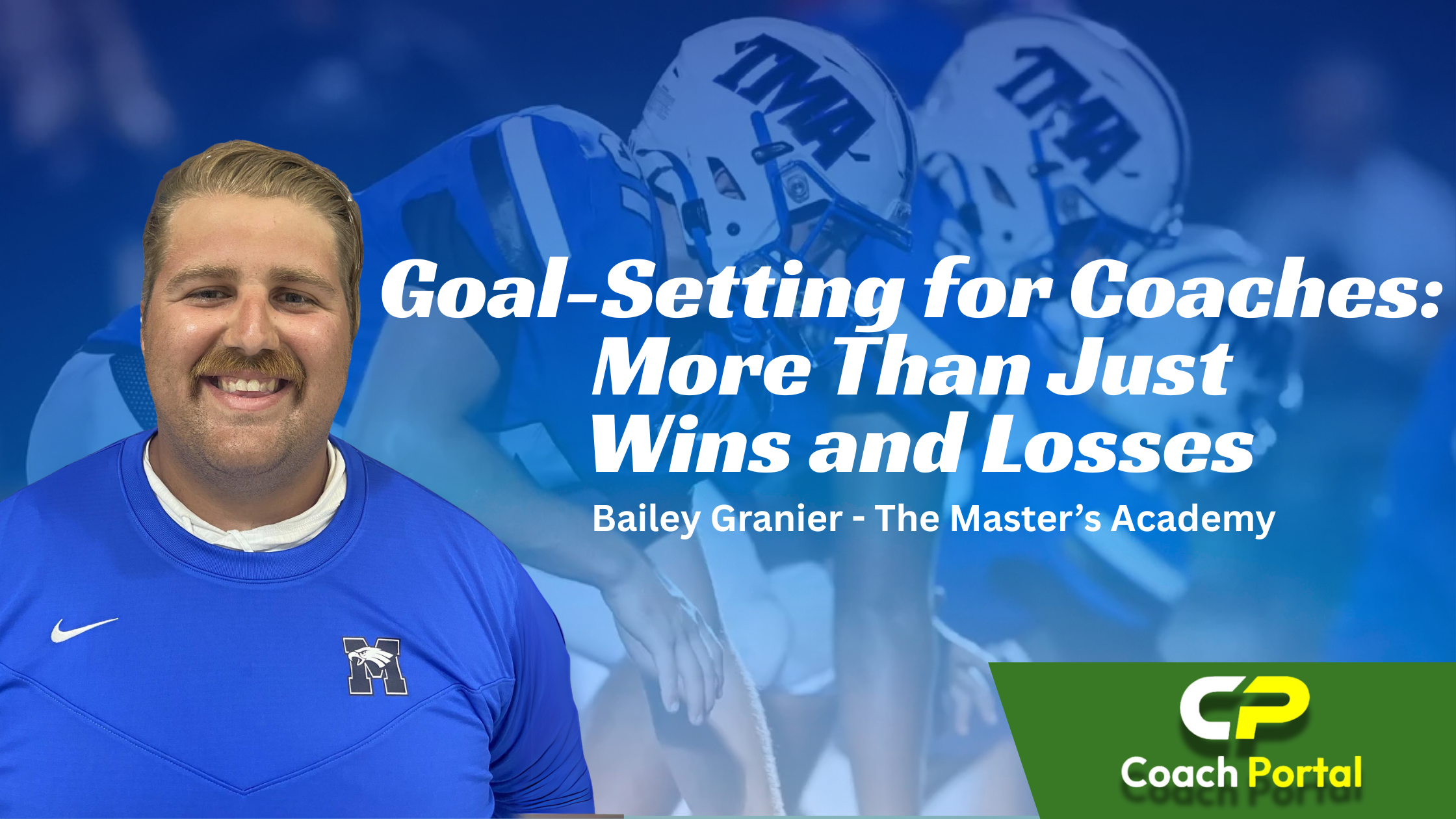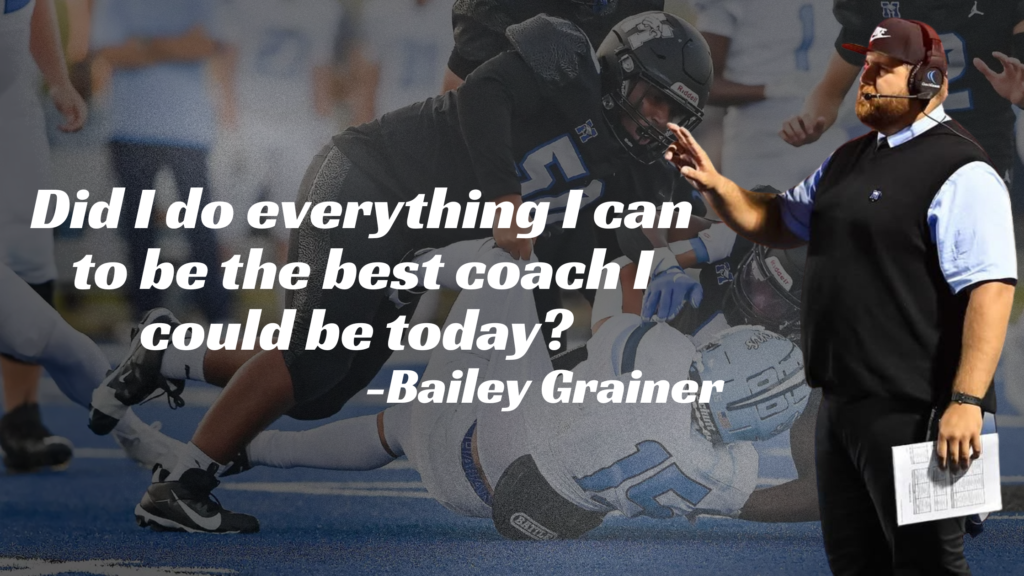
You don’t win championships in the fall—you win them in the spring, summer, and every quiet moment when nobody’s watching. That’s where goal-setting for coaches becomes more than just a scoreboard strategy. It’s the unseen foundation of a program that develops young men, sharpens staff, and aligns daily actions with a deeper purpose.
Too often, coaches tie success to wins. But as Bailey Granier, head coach at The Master’s Academy, reminds us, the mission runs deeper. “A man without a goal is like a ship without a rudder,” he said in a recent reflection on his coaching journey.
However, when you coach with clear goals, you set direction. When you track them, you gain momentum.
Set Goals in Every Phase of Development
The focus can’t just be football. Granier emphasizes a holistic approach to development, including faith, character, and life skills.
“Are we talking about being a better young man in Christ? … about being a higher person of character? Are we talking about specific football skills?” he asked, challenging coaches to expand their thoughts on growth.
By setting goals across multiple dimensions—spiritual, academic, physical, and emotional—coaches reinforce that success is built on strong foundations, not just schemes and play calls.
SMART Goals: A Coach’s Best Friend
Granier encourages coaches to use the SMART goals framework: specific, measurable, achievable, relevant, and time-bound. This framework helps define clear targets for both coaches and players.
To measure progress, coaches can use quantitative data like attendance or rep counts, and qualitative reflection such as attitude or leadership growth. Each goal should tie into a larger purpose. As Granier put it, “It has to be relevant to what you’re doing. It has to be something that is an area of need for you.”
Transitions like these give players and coaches small wins to build confidence and create long-term habits.
Reflection Drives Improvement
Setting goals is only the start. Tracking and adjusting them is what separates good coaches from great ones.
Each day, Granier asks himself, Did I do everything I can to be the best coach I could be today? That process of reflection helps him identify what to teach better, how to communicate more clearly, and where to grow. He believes growth becomes inevitable by encouraging tough conversations and leaning into discomfort.
After all, when coaches model this kind of self-assessment, players follow suit. Goal-setting becomes a culture—not a checklist.

Final Whistle
Goal-setting for coaches is about clarity, consistency, and character. It’s not about box scores—it’s about building something that lasts. The coaches who win the long game treat each season as a step toward something bigger: better players, better men, and a better version of themselves.
Make Your Next Move with Confidence
Along with your coaching career goals, take the steps necessary to put yourself in position to make your next move.
When it comes to making your coaching career decisions, take the next step in your coaching journey at Coach-Portal.com—a platform built for coaches to explore new opportunities, connect with programs, and confidently manage their careers.
🎯 Use code CCPODCAST to make your next move.

Related
The Speed of Trust: Building Your Coaching Career One Step at a Time


